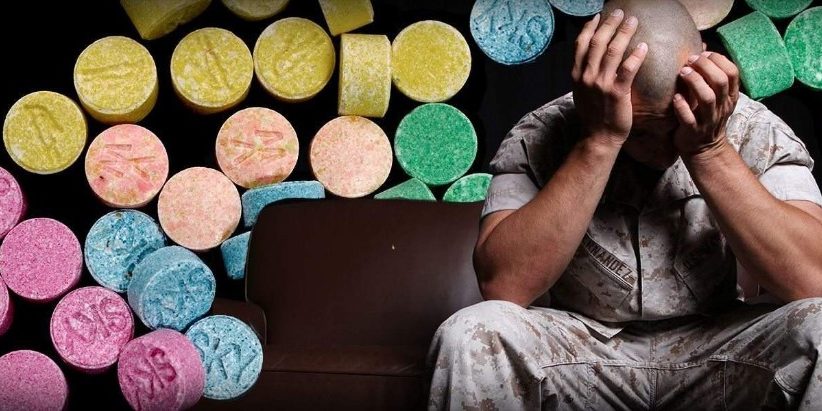Witnessing a life-threatening event can lead to post-traumatic stress disorder (PTSD). This debilitating mental condition is, in most cases, misdiagnosed for many years. It results in body shakes, panic attacks, insomnia and nightmares. Doctors may mistake it for anxiety and depression. There are many triggers to the symptoms including loneliness, physical contact, loud sounds, seeing a familiar face and so on.

A traumatized soldier grieving for comrade.
You can only imagine the horror going through the minds of combat soldiers who will forever be traumatized by memories of the battlefield. Many soldiers who return from war have to battle with post-traumatic stress disorder. Records show that about 25 percent of discharged American soldiers face PTSD for the rest of their lives. There has been a jump of 50 percent in the number of veterans diagnosed with PTSD since last year.
The MDMA treatment in combination with psychotherapy has been under trial for a while but has shown promising results. 32-year-old Alice who suffered serial abuse as a child came down with PTSD which she described as a nightmare. She recalled enrolling in the clinical trial which combined psychotherapy with MDMA.
She took 125mg of the drug -an amount that a recreational clubber might triple. The process was comfortable and the result was almost magical. Alice said:
“The MDMA just pulls things out of you. It supports you. You can start looking at all your experiences and how they are affecting you. There were times when I just sat up and started talking. Or I’d cry. Or these were moments of re-enactment. Physically, I felt like my whole body was vibrating for a while.”
Source: The Guardian

MDMA Treatment has multiple effects which may potentially assist therapy.
A veteran, James, 24, said the sight of fireworks made him recall the mangled bodies he saw while serving as a combat medic in Afghanistan with the 710th Combat Support Battalion, 3rd Brigade Combat Team, and 10th Mountain Division from March 2011 to 2012. He was at the point where any word from his wife set him off. He tried traditional and non-traditional therapies offered by the US Department of Veterans Affair (VA). He went on to try other unorthodox forms of treatment like hypnosis, prolonged exposure therapy and electrotherapy but none of them alleviated his symptoms. James said MDMA is a light in the dark of the fight against PTSD.
The recreational drug was deemed a Class 1 drug in 1985 along with cocaine, heroin, and marijuana because of the high abuse potential along with its severe safety concerns. MDMA can have different effects on different people, but the most reported are euphoria and a feeling of overwhelming love. Dr. Elizabeth Drew, a board-certified family physician, said a trained therapist can harness these emotions correctly and help the patient navigate through the trauma causing the PTSD.







